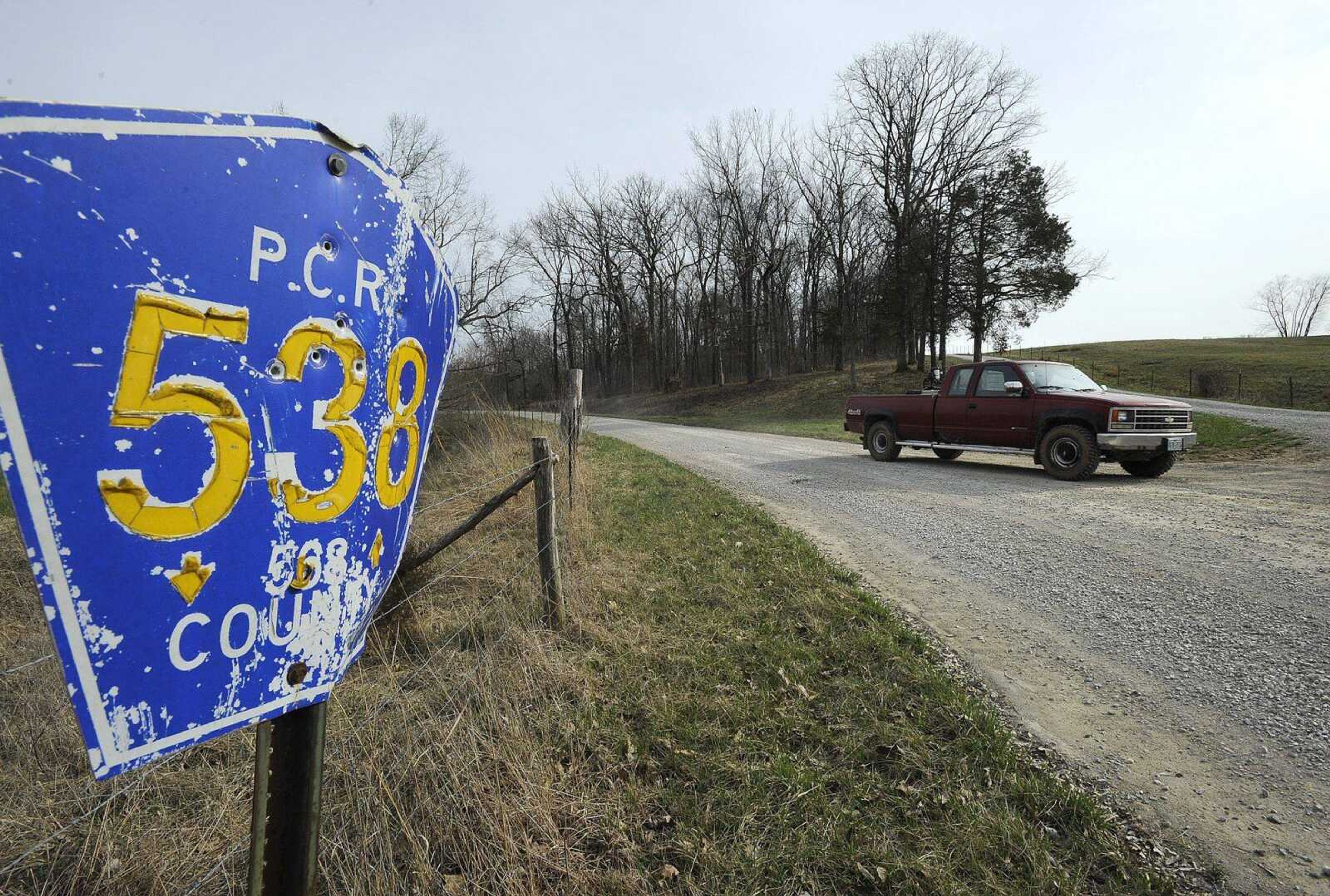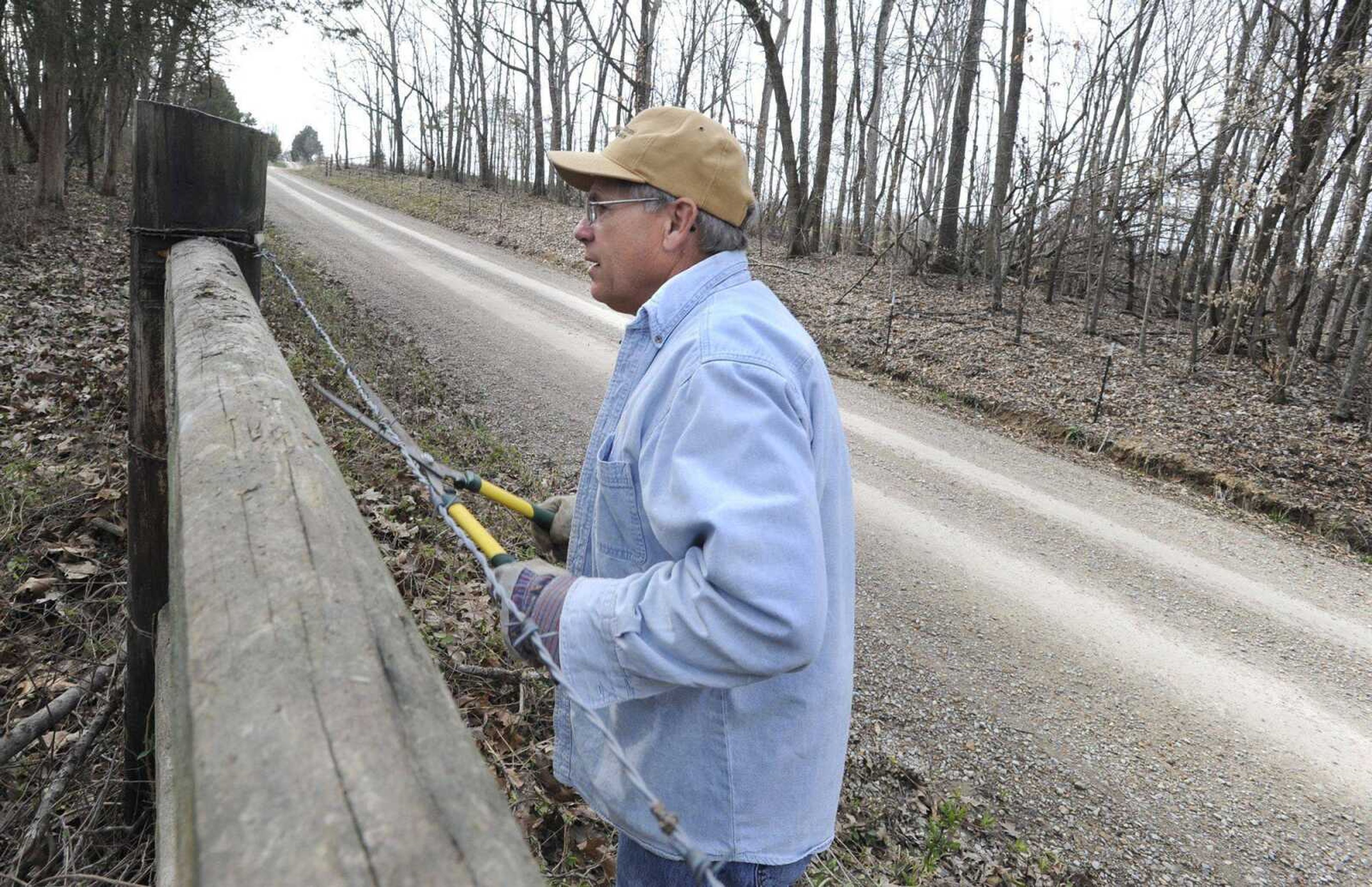Perry County to vote on renewing road improvement, maintenance sales tax
PERRYVILLE, Mo. -- On April 6, officials in Perry County hope its residents will vote in favor of extending a sales tax that since 2004 has helped to pave 75 miles of their 480 miles of county road. A "yes" vote wouldn't increase the tax that puts every three-eighths of one cent spent in Perry County toward road improvements and maintenance, but instead reinstate it for another six years...
PERRYVILLE, Mo. -- On April 6, officials in Perry County hope its residents will vote in favor of extending a sales tax that since 2004 has helped to pave 75 miles of their 480 miles of county road.
A "yes" vote wouldn't increase the tax that puts every three-eighths of one cent spent in Perry County toward road improvements and maintenance, but instead reinstate it for another six years.
Without the sales tax, county commissioners say additional improvements -- such as putting down new rock or installing culverts on problem gravel roads -- could be delayed or not happen at all.
Without approval from residents in Perry County, the sales tax for road improvements will end Dec. 31.
"We really don't have any roads lined up this year yet," said Perry County presiding commissioner Carl Leuckel. "Everything is kind of depending on whether or not this sales tax passes."
Since voters first gave their consent to the sales tax, it has brought in, on average, $800,000 a year for county road upgrades.
The tax allocated $866,297 to improvements in 2008 and just more than $844,000 in 2009.

"We can pave or maintain 10 miles of road per year with that amount of money," Leuckel said.
Recently, the county completed laying asphalt on Perry County Road 414, which took more than 5,000 tons of hot mix for a three-mile stretch of road. At $43 per ton, improvements to the road cost $252,000, just for materials.
"We've moved forward, we've got close to 75 miles of [chip and sealed] and asphalt roads," Leuckel said. "Everybody that has got the new road, they really enjoy it. It cuts down on the dust."
Wanda Brandt, a longtime Perryville resident who lived on a county gravel road for more than 30 years, said her quality of life has improved since asphalt was laid two years ago.
"Now that they've paved the road, it's easier to drive on, it's cleaner and it's easier on the vehicles," she said. "I really think people's health has improved."
Up until 2008, Brandt and her family fought to keep the outside of their home on County Road 819 clean as steady traffic would stir up dust, forcing them to keep their windows closed on most spring and summer days.
And although she paid to have oil strips placed on the road in front of her home to keep the dust at a minimum, it seemed pointless, she said, if your neighbor didn't purchase them, too.
Brandt said she also repaired numerous flat tires because of potholes caused by lingering bad weather.
"The gravel was really rough on the tires," she said. "If you wanted to walk or anything, you just couldn't when it was real dry out. The tax really helped in a lot of ways."
If the vote passes, allowing for additional funding, Perry County road and bridge supervisor Randy Steffens said he and his crew would be hauling and putting down new rock on some gravel roads that did not get paved. They'd also schedule grading and ditching of a few other gravel roads.
Funds from the sales tax would also be used for maintenance of the county roads that were paved with asphalt.
"It does take a considerable amount of time and money to do that," Steffens said.
Perry County officials said there is even more need for the sales tax to continue after the federal government cut an allocation from the Bridge Replacement and Rehabilitation Program. Before the cut, the program offered counties a grant for bridge improvements where the federal government paid 80 percent of the cost and the county paid 20 percent.
"We're pushing the governor to put pressure on the federal government to bring it back in," District 1 Commissioner Patrick Heaps said.
Without the program, the costs of replacing or improving a bridge fall 100 percent on the county. More than 100 bridges in Perry County remain uninspected, are old and deteriorating quickly, Steffens said.
"That's all the more reason for this [sales tax] to pass," said District 2 Commissioner James Sutterer. "It's good for replacing bridges also. "
ehevern@semissourian.com
388-3635down
Connect with the Southeast Missourian Newsroom:
For corrections to this story or other insights for the editor, click here. To submit a letter to the editor, click here. To learn about the Southeast Missourian’s AI Policy, click here.









